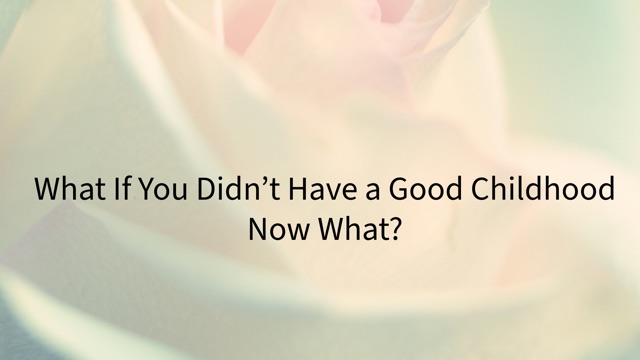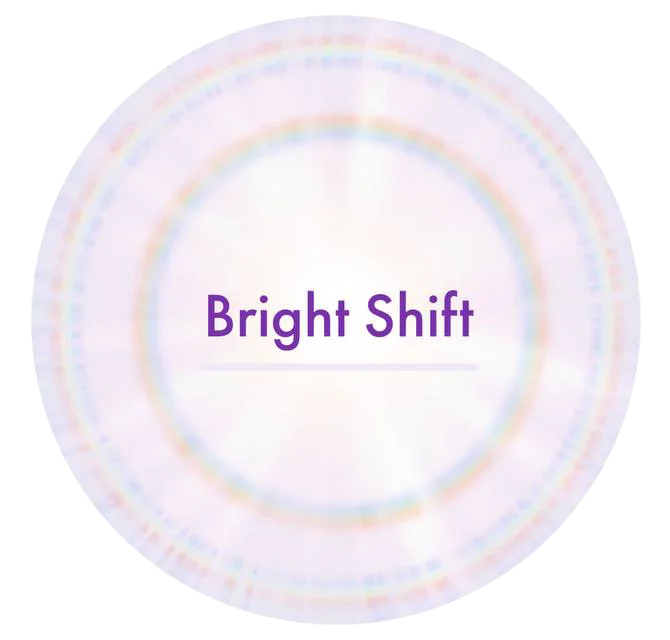What If You Didn’t Have a Good Childhood—Now What?!

We’ve all heard of it: “Your childhood shapes everything.” From attachment styles to core beliefs, developmental psychology has long argued that who you are today is a direct extension of who you were allowed to be—often before you even had words to describe it. Traumatic infancy? Emotionally unavailable caregivers? A chaotic home? According to many approaches, you may be destined to reenact these early patterns across your adult life.
But, this is only half the story.
Difficult childhood is not a permanent sentence, but it can rather be a portal.
Traditional developmental psychology has gifted us with powerful frameworks: Erikson’s psychosocial stages, Bowlby’s attachment theory, and Piaget’s cognitive development, to name a few. But these models are often steeped in linear causality and early-life determinism—the idea that what happens in the “critical window” (usually birth to age 7) can set the story of the rest of our life.
This perspective, while useful, can be subtly disempowering. It reinforces the belief that if your early needs weren’t met—in other words, if you didn’t have the best childhood—you’ll spend the rest of your life compensating for what’s missing rather than discovering what’s possible.
Psychologically speaking, this is a form of inner colonization—a takeover of the soul’s narrative by scientific fatalism.
We need to challenge the mindset that narrates adulthood is a static destination. That we solely “become” someone, filtered through the damage or success of our early years.
Human consciousness is not a closed system.
The psyche is relational, and regenerative.
Moreover development is not confined to childhood—it continues across the entire lifespan. We are not just shaped by our past; we are also summoned by our future.
Within us lies a blueprint not only for survival, but for self-actualization and self-transcendence. Even the most wounded childhood cannot erase the deeper call of the Self.
Childhood as Context, Not Destiny
If you didn’t have a good childhood, you didn’t get the “ideal soil.” But that doesn’t mean your roots can’t grow.
In fact, adversity can serve as a spiritual initiator—a rupture that forces a confrontation with deeper truths.
We need to heal our childhood wounds, but we can also learn to transform them into inner resources:
• The absence of safety can become the birthplace of radical self-trust.
• The loss of voice can become a commitment to authentic self-expression.
• The experience of not being seen can become a deeper attunement to others.
This is not spiritual bypassing.
It is an invitation to take authorship over your own becoming—to reclaim your psyche from the outdated narrative that says, “Because your childhood was broken, so are you.”
From Fixing the Past to Forming the Self
Much of therapy still revolves around “reparenting,” “inner child work,” and “healing attachment wounds.” These are powerful and necessary tools. But they are not the final word.
At some point, a psychological shift occurs:
You stop asking “What happened to me?” and begin asking “What do I now choose to become?”
Your story becomes a living myth—not a pathology to be treated, but a journey to be honored.
So… Now What?
If you didn’t have a good childhood:
• You are not a failed prototype.
• You are not an emotional orphan waiting for rescue.
• You are not doomed to repeat what was done to you.
We are an unfolding human, capable of inner authorship, and spiritual emergence,
Psychological maturity is not measured by how ideal our childhood was, but by how courageously we can now engage with our life story—not as a fixed past, but as a living, evolving act of creation.
